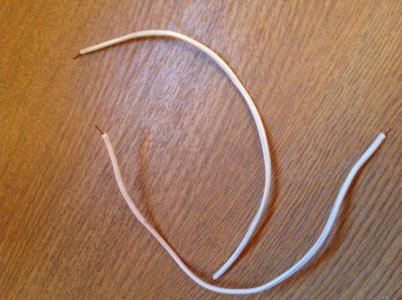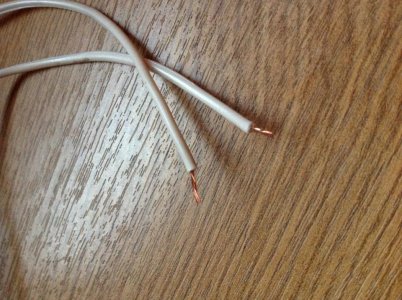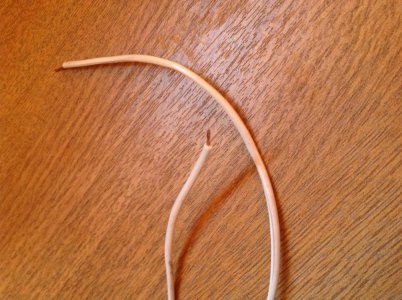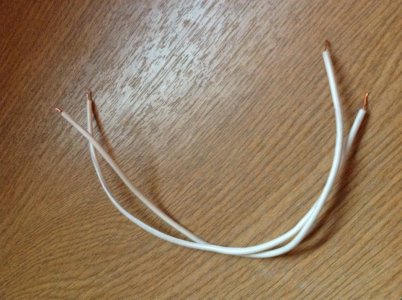You are using an out of date browser. It may not display this or other websites correctly.
You should upgrade or use an alternative browser.
You should upgrade or use an alternative browser.
WIRES
- Thread starter AAAHHH79
- Start date
tonechaser
New member
Re: WIRES
What size are you already using?
What size are you already using?
AAAHHH79
New member
Re: WIRES
Sorry if this is a stupid question (I come from a spanish speaking country so it´s difficult to me to understand that kind of expressions), but that means I need a thicker or thinner wire?22AWG is overkill.
ratherdashing
Kablamminator
Re: WIRES
Thinner or thicker than what?!?
Sorry if this is a stupid question (I come from a spanish speaking country so it´s difficult to me to understand that kind of expressions), but that means I need a thicker or thinner wire?
Thinner or thicker than what?!?
AAAHHH79
New member
ratherdashing
Kablamminator
Re: WIRES
22 is big for guitar. I use 24 myself, but either one is fine. The smaller the number, the thicker the wire is.
Remember, a pickup is a coil of extremely thin wire - 42AWG at most. If the signal can flow nicely through that, a 22 or 24 gauge wire will be plenty.
Than 22AWG
22 is big for guitar. I use 24 myself, but either one is fine. The smaller the number, the thicker the wire is.
Remember, a pickup is a coil of extremely thin wire - 42AWG at most. If the signal can flow nicely through that, a 22 or 24 gauge wire will be plenty.
AAAHHH79
New member
Re: WIRES


My concern about this is that they were originally two wires that were attached to each other, I cut them so they could be used separately. Also someone told me these were wires used in telephones or something like that, which I don't believe cause I think they are almost the same gouge as the wires I'm currently using. I think they should work fine, right?
Thanks ratherdashing, but I have another doubt. I've found these wires that were unused at my place, so I thought I could use them as jumper cables or something like that when wiring my guitar. Here are some pics:22 is big for guitar. I use 24 myself, but either one is fine. The smaller the number, the thicker the wire is.
Remember, a pickup is a coil of extremely thin wire - 42AWG at most. If the signal can flow nicely through that, a 22 or 24 gauge wire will be plenty.


My concern about this is that they were originally two wires that were attached to each other, I cut them so they could be used separately. Also someone told me these were wires used in telephones or something like that, which I don't believe cause I think they are almost the same gouge as the wires I'm currently using. I think they should work fine, right?
Attachments
ratherdashing
Kablamminator
Re: WIRES
24AWG copper or aluminium wire is really cheap, so I don't know why you would want to re-use wire you're not sure about.
I'm not going to make a recommendation based on your photos. It's impossible to tell anything from those. The only way to figure out if your wire will work is if you try it, or test it with a multimeter.
24AWG copper or aluminium wire is really cheap, so I don't know why you would want to re-use wire you're not sure about.
I'm not going to make a recommendation based on your photos. It's impossible to tell anything from those. The only way to figure out if your wire will work is if you try it, or test it with a multimeter.
AAAHHH79
New member
Re: WIRES
Thanks for your help anyway ratherdashing!
Yeah, I know. But I have LOTS of these wires at my place, which were never used, and I thought that if they work I could use them instead of having to bother to buy new ones. I'll try them and if they don't work I'll just buy new ones.24AWG copper or aluminium wire is really cheap, so I don't know why you would want to re-use wire you're not sure about.
Thanks for your help anyway ratherdashing!
Myaccount876
Amira-Maker
Re: WIRES
They seem to be a little big, I'd only use them for grounds.
I use 30 AWG wire.
They seem to be a little big, I'd only use them for grounds.
I use 30 AWG wire.
ItsaBass
New member
Re: WIRES
What you have looks to me like it should work fine.
Pretty much any wire within reason will work, electronically speaking; IME guitar circuits are not sensitive to wire type. The only really important consideration IMO is how easy the wire is to work with. You don't want it too thick or too thin to easily route, shape, strip, or fit into lugs. And you don't want insulation that is hard to keep from melting. After trying many things, I view 22 gauge stranded, pre-tinned, cloth-insulated wire as the stuff that is best all around. It doesn't really get any easier than that. Impossible to melt, no stripping needed, very clean looking, and not too thick or too thin. I find thinner wire than 22 gauge to be very difficult to work with.
What you have looks to me like it should work fine.
Pretty much any wire within reason will work, electronically speaking; IME guitar circuits are not sensitive to wire type. The only really important consideration IMO is how easy the wire is to work with. You don't want it too thick or too thin to easily route, shape, strip, or fit into lugs. And you don't want insulation that is hard to keep from melting. After trying many things, I view 22 gauge stranded, pre-tinned, cloth-insulated wire as the stuff that is best all around. It doesn't really get any easier than that. Impossible to melt, no stripping needed, very clean looking, and not too thick or too thin. I find thinner wire than 22 gauge to be very difficult to work with.
Last edited:
AAAHHH79
New member
Re: WIRES
Thanks for all the information ItsaBass! It will be very helpful.What you have looks to me like it should work fine.
Pretty much any wire within reason will work, electronically speaking; IME guitar circuits are not sensitive to wire type. The only really important consideration IMO is how easy the wire is to work with. You don't want it too thick or too thin to easily route, shape, strip, or fit into lugs. And you don't want insulation that is hard to keep from melting. After trying many things, I view 22 gauge stranded, pre-tinned, cloth-insulated wire as the stuff that is best all around. It doesn't really get any easier than that. Impossible to melt, no stripping needed, very clean looking, and not too thick or too thin. I find thinner wire than 22 gauge to be very difficult to work with.
F
Funkfingers
Guest
Re: WIRES
The wire in the photographs that used to paired looks to me like doorbell wire. Yes, it would work but it is unnecessarily chunky. It would take up a lot of space in your control cavity. The twisted metal might not fit easily into soldering eyelets. (It is intended for screwed-in terminals.) The plastic insulation might not withstand the heat of soldering.
The wire in the photographs that used to paired looks to me like doorbell wire. Yes, it would work but it is unnecessarily chunky. It would take up a lot of space in your control cavity. The twisted metal might not fit easily into soldering eyelets. (It is intended for screwed-in terminals.) The plastic insulation might not withstand the heat of soldering.



